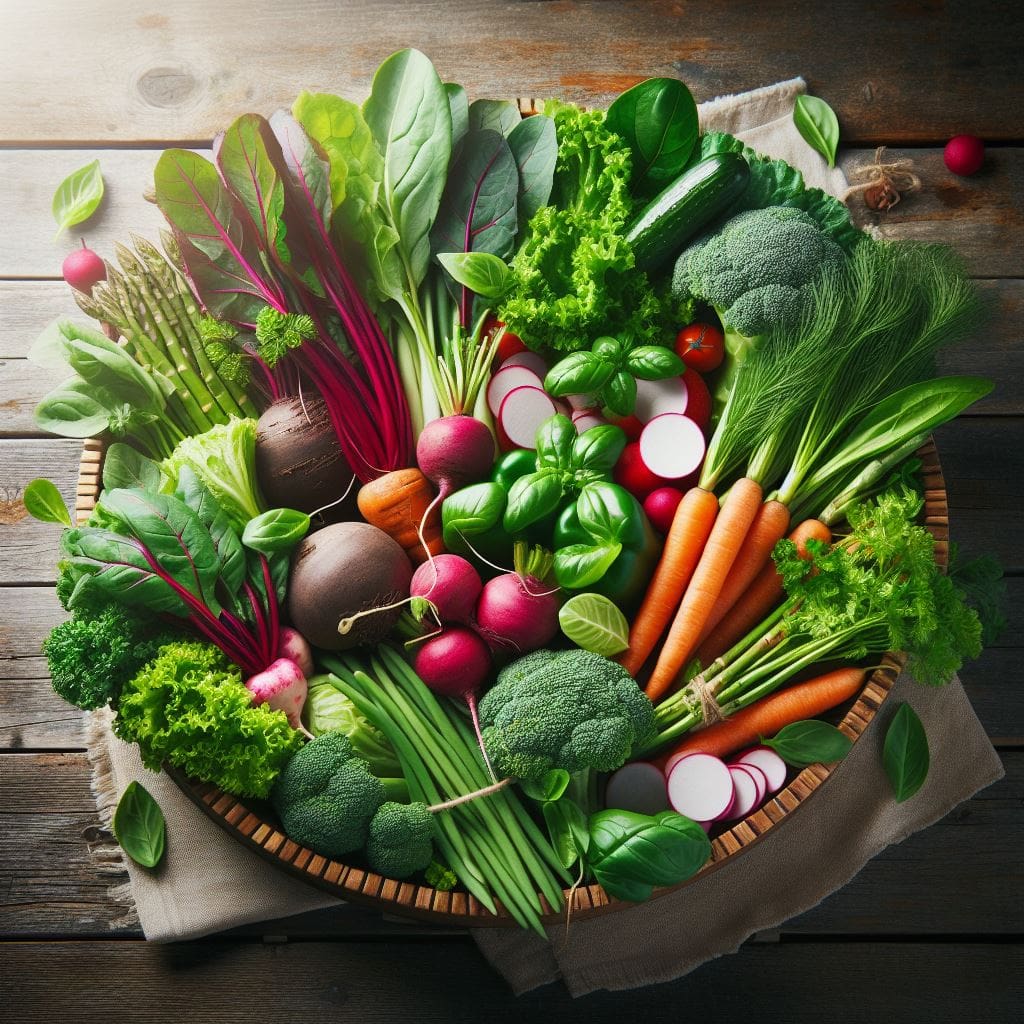
Vegetables are indispensable in our daily diet, serving as a cornerstone of nutritional well-being. Their diverse benefits extend beyond the traditional culinary realm, presenting an alternative avenue often overlooked: the transformation into nutritious vegetable juice.
Juicing is a fantastic way to get your daily dose of essential nutrients from fruits and vegetables. However, it can be challenging to know which vegetables to choose for maximum health benefits.
This article explores the specific advantages of vegetable juice, delving into its unique properties and which vegetables are best for juicing to promote vitality by incorporating it into one’s diet.
While vegetables on our plates offer nutritional benefits, their juiced form mirrors these advantages in a distinct manner.
By juicing vegetables, you can extract all the vitamins, minerals, and other nutrients from the vegetables in an easily digestible form, which can help boost our energy levels and promote overall vitality.
The effectiveness of vegetable juice is intricately tied to the individual properties of each vegetable, creating a dynamic blend of flavours and nutrients.
Vegetable juice, essentially the extracted liquid from various vegetables, not only provides a delightful alternative to conventional dishes but also serves as a concentrated source of essential vitamins and minerals.
Fruits and vegetables, when juiced, undergo a transformation into antioxidant-rich elixirs. These juices become a powerhouse, supplying the body with crucial vitamins such as A, B, C, and minerals like calcium, phosphorus, potassium, and magnesium.
This infusion plays a pivotal role in balancing bodily functions, enhancing cellular vitality, and promoting gastrointestinal health. Moreover, it stimulates the secretion of digestive juices, offering relief from fatigue and fostering overall well-being.
The human body contends with toxic substances from two primary sources – atmospheric and water pollutants, and waste generated during food metabolism, including heavy metals like lead, aluminium, and mercury.
Fresh fruit and vegetable juices emerge as formidable allies in eliminating accumulated toxins. As these juices traverse the digestive system, they not only alkalize the blood but also dissolve toxins in cells, facilitating their expulsion from the body.
Preparing vegetable juice is a simple yet transformative process. By washing and slicing vegetables into small pieces, they can be effortlessly blended using a juicer.
The resulting concoction can be enjoyed as is or personalized with the addition of sugar or honey, making it an adaptable and palatable addition to one’s dietary routine.
The best Vegetables for juicing
Now, let’s delve into the specific advantages of consuming some popular vegetable juices:
The best vegetables for juicing are those that are rich in nutrients, such as kale, spinach, beets, and carrots. Kale and spinach are packed with vitamins A and C, while beets are an excellent source of iron and potassium. Carrots are a great source of beta-carotene, which can help improve eye health and boost our immune system.
Other excellent vegetables for juicing include celery, cucumber, and ginger. Celery is an excellent source of antioxidants, while cucumber is rich in potassium and can help to reduce inflammation in the body. Ginger is a potent anti-inflammatory and can help ease digestive issues and reduce pain.
When juicing vegetables, it is essential to choose organic produce whenever possible, as this will ensure that you are getting the most nutrient-dense produce.
It is also important to choose a high-quality juicer that will extract the maximum amount of nutrients from your vegetables.
Carrot Juice:
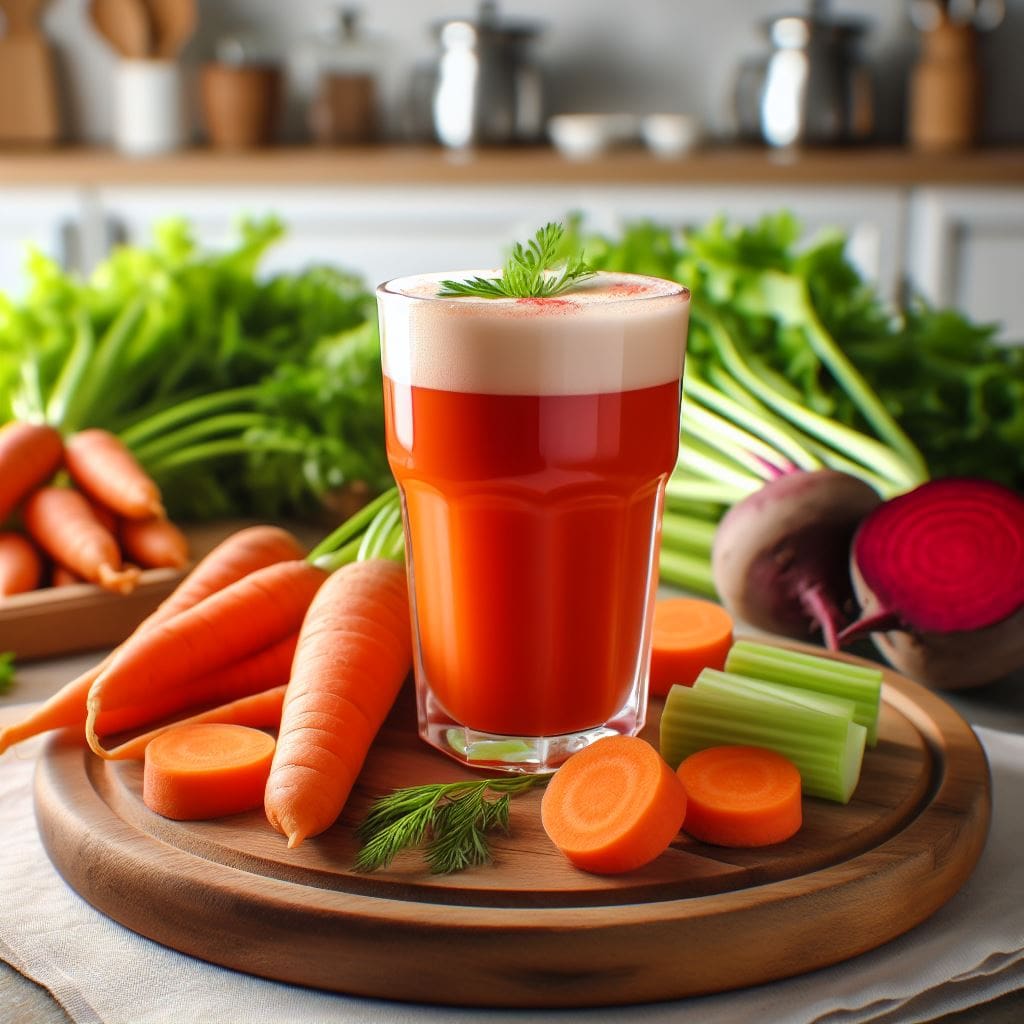
The consumption of carrot juice is renowned and widely embraced as one of the most sought-after vegetable juices. This particular beverage boasts a significant abundance of beta-carotene, a compound that undergoes conversion into vitamin A within the human body.
The presence of vitamin A is vital for the maintenance of optimal ocular health, skin wellness, and a robust immune system. Additionally, carrot juice is replete with antioxidants, thereby contributing to the mitigation of inflammation and the prevention of chronic ailments.
Nursing mothers find additional benefits from increased milk quality.
Celery Juice:
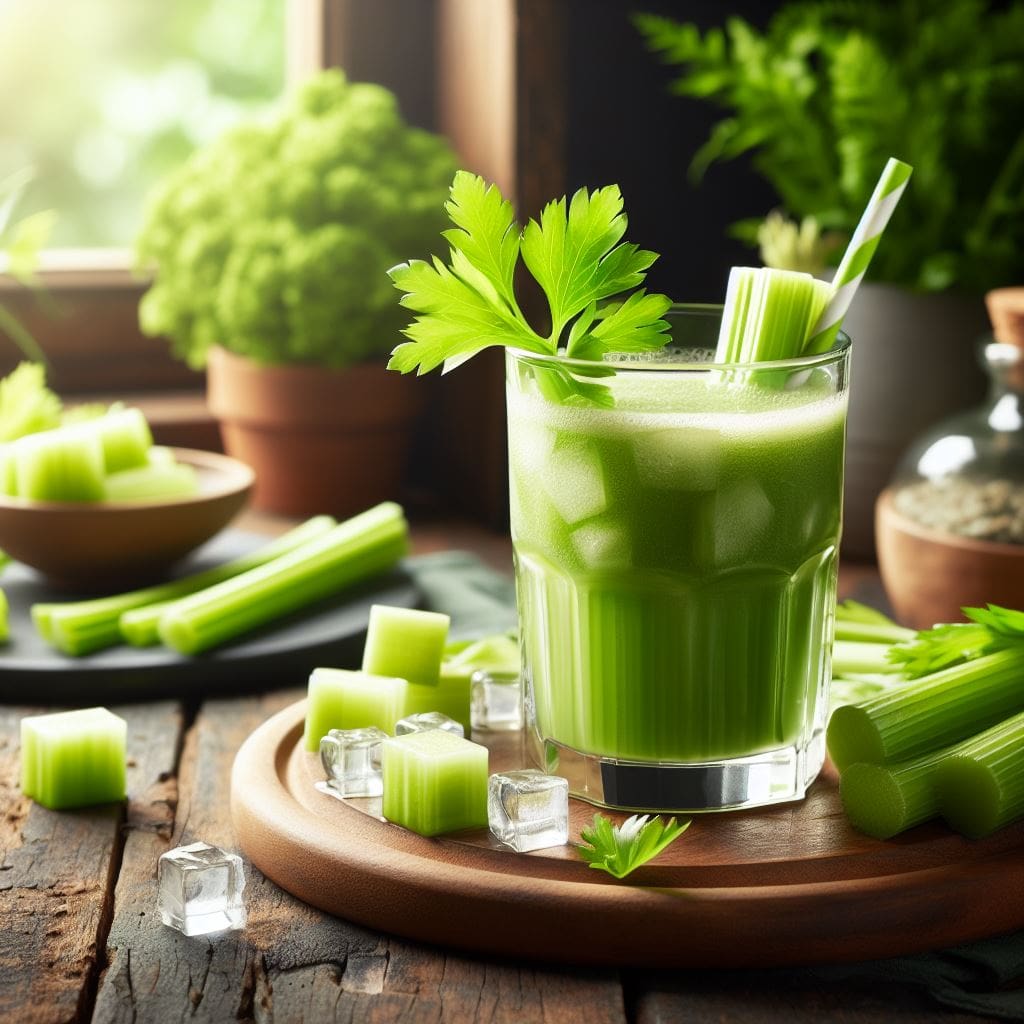
Celery Juice: The consumption of celery juice contributes to the intake of a substantial amount of potassium, thereby facilitating a decrease in blood pressure levels and an enhancement of cardiovascular well-being.
Moreover, it serves as an exceptional reservoir of antioxidants, which possess the ability to mitigate inflammation and avert the onset of persistent ailments.
With a flavour that is pleasant, celery juice is especially helpful during dry, hot weather. Beyond boosting appetite, it serves as a diuretic, light laxative, and antihypertensive remedy.
Rich in vitamins A, B1, B2, C, and P, celery juice stands out as an excellent choice for those with vitamin deficiencies.
Tomato Juice:
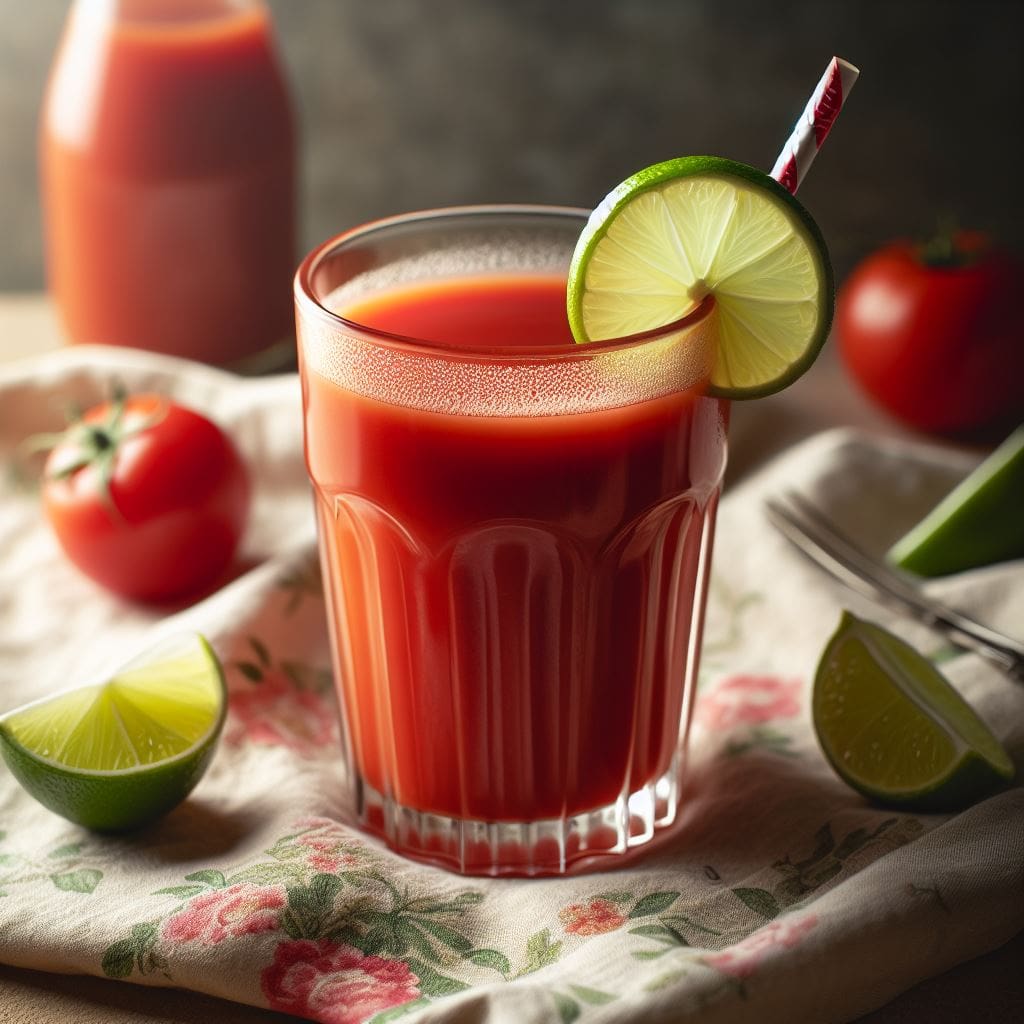
Tomato juice contains a significant amount of lycopene, an influential antioxidant that has the potential to diminish the chances of acquiring heart disease and specific forms of cancer.
Additionally, the daily consumption of 2–3 tomatoes per person provides an ample supply of vitamin C, as it serves as an exceptional reservoir of vitamin C and potassium, both of which play a crucial role in mitigating blood pressure levels.
Ginger Juice:
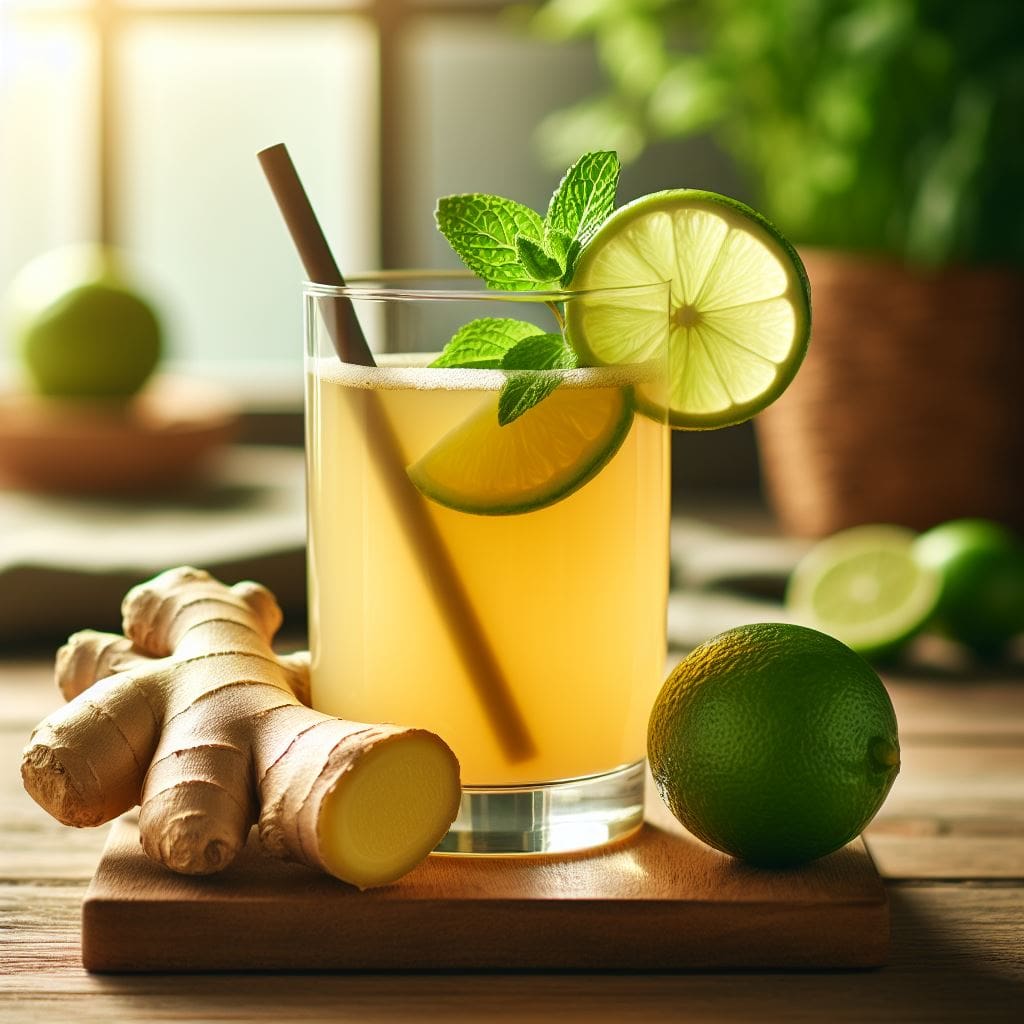
The utilization of ginger juice for its anti-inflammatory attributes has been prevalent for a considerable period of time.
It possesses the potential to alleviate pain and inflammation within the body, thus rendering it a commendable selection for individuals suffering from arthritis or other inflammatory ailments.
Furthermore, ginger juice serves as an excellent reservoir of antioxidants, thereby facilitating the augmentation of one’s immune system.
Cucumber Juice:
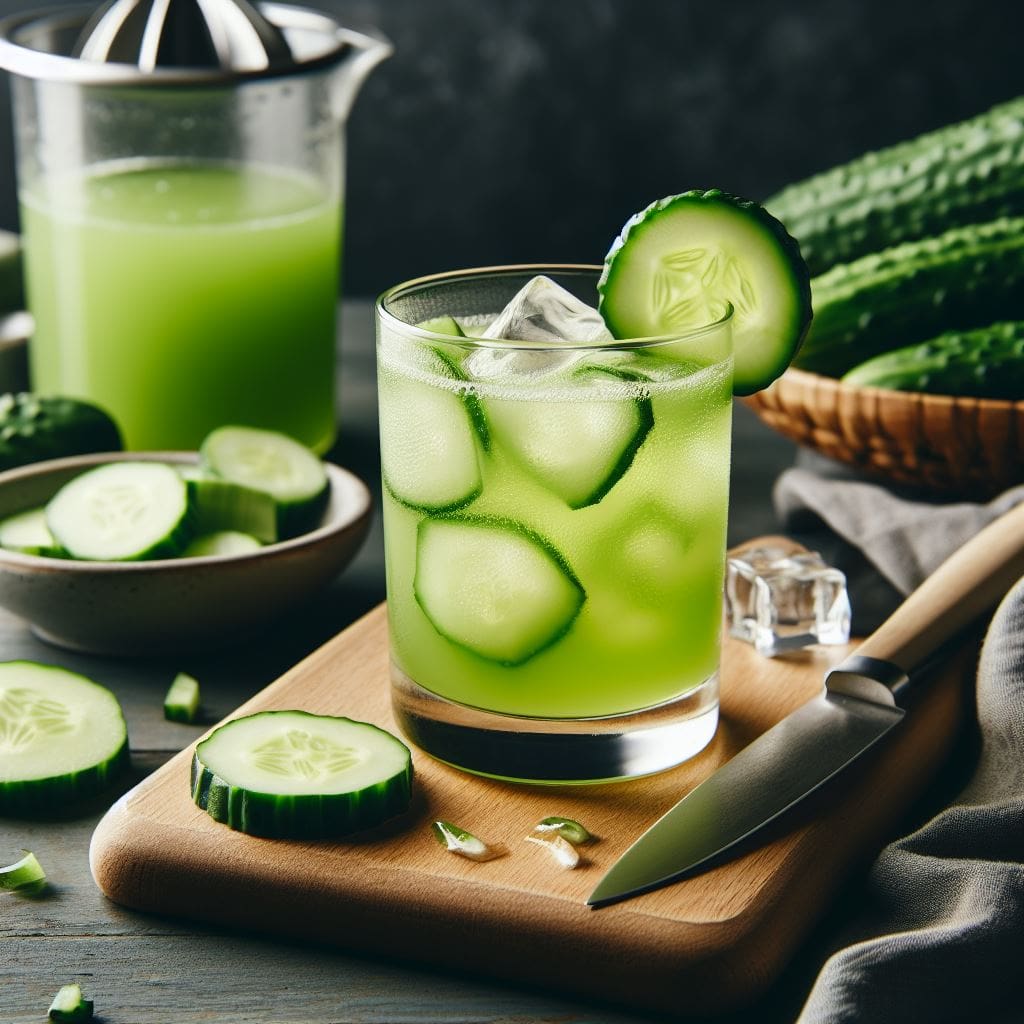
The infusion of cucumber provides a revitalizing and moisturizing effect, rendering it an excellent option for scorching summer days. Moreover, it boasts a remarkable abundance of silica, enabling it to enhance the well-being of both your skin and hair.
Cucumber juice, in addition, serves as an exceptional storehouse of antioxidants that effectively fight against inflammation.
Kale Juice:
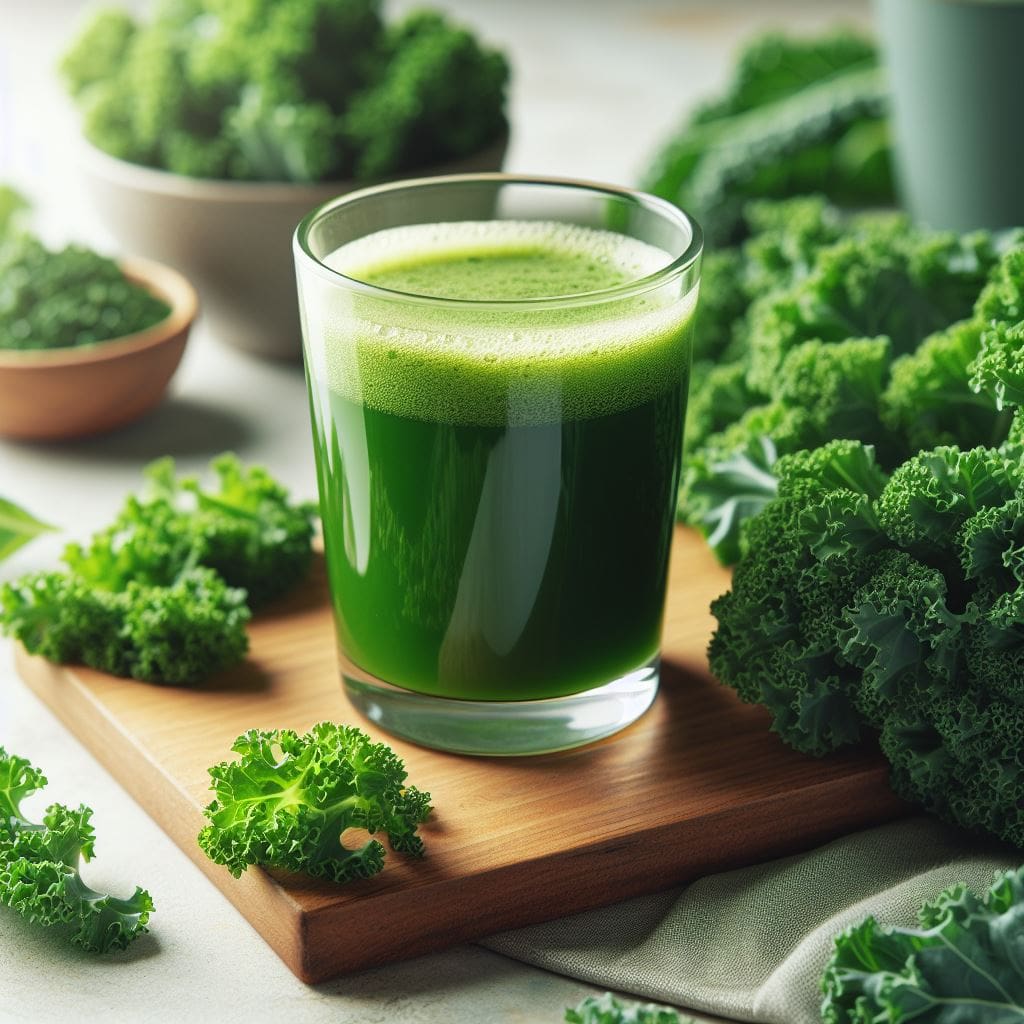
The consumption of kale juice has gained significant popularity in contemporary times owing to its noteworthy nutrient composition.
Kale juice is abundant in essential vitamins such as A, C, K, calcium, and iron. Moreover, it serves as a great source of antioxidants that contribute to the process of bodily detoxification.
Vegetable juice offers a myriad of benefits, with each advantage contingent on the unique properties of the vegetables involved. The overall impact is the provision of essential vitamins, making it an accessible and practical addition to one’s regular dietary routine.
Tips for Juicing
- Wash your vegetables: Make sure to wash your vegetables thoroughly before juicing to remove any dirt or debris.
- Prep your vegetables: Cut your vegetables into small pieces before juicing to make the process easier.
- Store your juice: Store your juice in an airtight container in the refrigerator for up to 24 hours.
- Drink your juice right away: Drink your juice as soon as possible after juicing to get the most nutrients.
Finally, try drinking a glass of juice in the morning or as a midday snack to help boost your energy levels. So embrace the simplicity of preparing vegetable juice and unlock a vibrant path to enhanced well-being.


